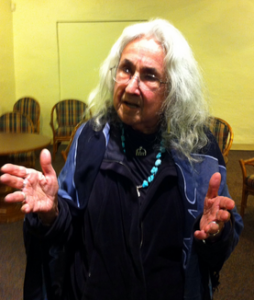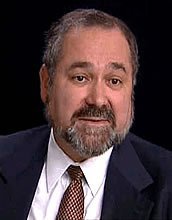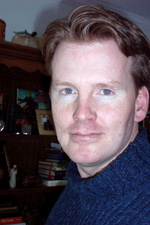
How America Went From Mom-and-Pop Capitalism to Techno-Feudalism
The crisis of 2020 has created the greatest wealth gap in history. The middle class, capitalism and democracy are all under threat. What went wrong and what can be done?

How America Went From Mom-and-Pop Capitalism to Techno-Feudalism
The crisis of 2020 has created the greatest wealth gap in history. The middle class, capitalism and democracy are all under threat. What went wrong and what can be done?

Dear friends,
For several years I have been increasingly challenged, curious and evolving in my journey regarding equity, justice, and privilege. Recently I’ve read three articles that together offer a perspective that I experience as a watershed in this exploration.
The first one offers a remarkably co-intelligent perspective on diversity, privilege and equity that I shared last week. It and the next one (below) highlight how privilege-derived power can be used to change systems of marginalization and oppression. This requires privileged people to awaken from the presumption and unconsciousness that usually accompany privilege, so they can CHOOSE to use their power in such life-affirming ways. Continue reading “Tom Atlee's Co-Intelligence Journal”
 As received via email — a summary message of hope followed by a voice analysis of President Trump at the Alamo.
As received via email — a summary message of hope followed by a voice analysis of President Trump at the Alamo.
– – – –
People are weary, disheartened, they need hope to have the power to self educate and take control of their lives
Continue reading “Sharry Edwards: A Message of Hope & Trust in President Trump”
Indigenous “intelligence” appears to be making a comeback in public consciousness.
Deena Metzger– Seeing through Indigenous Eyes, Weaving Community Dreams, Stories and Spirit
Deena Metzger is a poet, novelist, essayist, storyteller, teacher, healer and medicine woman who has taught and counseled for over forty years, in the process of which she has developed therapies (Healing Stories) which creatively address life threatening diseases, spiritual and emotional crises, as well as community, political and environmental disintegration.

She has spent a lifetime investigating Story as a form of knowing and healing. As a writer, she asks: Who do we have to become to find the forms and sacred language with which to meet these times?
She conducts training groups on the spiritual, creative, political and ethical aspects of healing and peacemaking, individual, community and global, drawing deeply on alliance with spirit, indigenous teachings and the many wisdom traditions. One focus is on uniting Western medical ways with indigenous medicine traditions.
With her husband, writer/healer Michael Ortiz Hill, she has introduced the concept of Daré, meaning Council, to North America. The Topanga Daré relies on Council, alliance with Spirit and the natural world, ancestor work, indigenous and wisdom traditions and teachings, music healing, dream telling, divination, kinship, and story telling to achieve personal transformation, community healing and social change.
She is the author of many books, including most recently, the novels La Negra y Blanca and Feral; Ruin and Beauty: New and Selected Poems; From Grief Into Vision: A Council; Doors: A fiction for Jazz Horn; Entering the Ghost River: Meditations on the Theory and Practice of Healing; The Other Hand; Tree: Essays and Pieces, A Sabbath Among the Ruins, Looking for the Faces of God andWriting For Your Life.

I have begun drafting my portion of the new Handbook of Intelligence Studies (Routledge, 2013), it is a chapter early on entitled “The Craft of Intelligence.” I pick up where Allen Dulles and Sherman Kent left off. My graphic on Intelligence Maturity captures the essence of my thinking at the strategic level, but of course there is more to come, including the desperate need to restore integrity to all that we do.
In 1988 I ghost-wrote for the Commandant of the Marine Corps an article that he enhanced and signed, “Global Intelligence Challenges in the 1990's.” At that time my focus was on the difference between the conventional threat and the emerging unconventional threat.
Now my focus is on the purpose and process of intelligence as decision-support. We must — we will — move from secret intelligence for the few to open intelligence for the many; from expensive centralized largely worthless intelligence to free and low-cost distributed intelligence relevant to every person at every level on every issue; from intelligence as window-dressing for channeling $80 billion a year to banks and corporations, to intelligence as an integral element of every aspect of a Smart Nation.
Today Owl sent me a link to an article, Philip E. Tetlock and Barabara A Mellers, “Intelligent Management of Intelligence Agencies,” American Psychologist, 2011, pp. 1-12. I respect Owl, so I printed it and read it twice.
This article is completely out of touch with reality and the authors have not bothered to familiarize themselves with the literatures pertinent to their endeavor. Out of 89 cited sources 12 are non-intelligence-related prior publications of the lead author, 1 is a prior publication of the second author, and 11 are ostensibly about intelligence but truly marginal selections. So 12% sources on the subject, 13% self-citation, and 75% escoteric psycho-babble irrelevant to the actual challenge. As an intelligence professional, I am offended that two ostensibly erudite individuals would dare to publish this trype without even a semblance of understanding of the subject under discussion.
See Also:
Robert Steele: The Craft of Intelligence – OLD vs. NEW
Here are a few comments and additional links:

Why The Global System is Killing Trust
Posted: 09 Feb 2012 03:35 PM PST
Trust is an essential building block of any economic and social system. Systems that attempt to operate without it inevitably fail. A loss of trust typically preceeds a collapse in legitimacy.
That's our future. Here's why:
Let's start with a philosopher “king” of crypt0-security, Bruce Schneier. He has a new book out called Liars and Outliers: Eneabling the Trust that Society Needs to Thrive (Wiley, 2012).
The book is all about the mechanisms for building trust. There are four mechanisms:
He contends (rightly) that in the modern world, we don't typically make/have the personal relationships required to build moral and reputational trust. We typically make impersonal relationships when we interact with a global economic system (you buy stuff made by people you don't know). As a result, we rely up on institutional (legal compliance) and security (to guard against bad behavior) to provide the level of trust necessary to make the global economy work.
There are two massive problems with that.
Legal compliance is increasingly a farce. Take the mortgage settlement the US government and the financial industry reached over rampant fraud in mortgage lending. I wrote a bit more about it on the Resilient Community blog if you want more detail. What does this mean? That even at the national level in a “developed country” it is impossible to use legal means to enforce trustworthiness (let's not even talk about compliance at the global level). It's doesn't work anymore. It's just too easy for anybody with financial means, to buy off country's legal system for pennies on the dollar (to the damage caused). The compliance system is broken.
So, that leaves us with security as the only way to prevent bad actors from running away with the global system. This leads me to a great presentation I heard yesterday by Dan Geer. He's another philosopher “king” of crypto-security (but for the CIA). Very smart guy. He made a convincing case that security is scaling slower than data, bandwidth, node, and user growth. It is falling behind and will continue to fall behind as the global system grows.
Upshot: it's already nearly impossible to secure big organizations. Every Fortune 500 company has and will continue to compromised. The government's systems are already a sieve. There's almost nothing that can be done about it and it will get increasingly worse. Forget about securing a single person trying to connect to the global system. They are just sheep ready for slaughter.
So, what happens now?
The global system will continue to grow. Trust will continue to leak as attempts at compliance and security fail to work effectively. The economic depression we have already started gets worse and worse and worse. Disorder erupts. It grows….
Is there a solution? An alternative form of social order that can provide a scalable global solution?
Yes. Resilient communities. Resilient communities rescale your life down to a rational level. They make personal relationships with the people that economically interact with you possible (again).
Hey, let the rest of the world sink into the squalor of a trust free world. It will make that system easier to trounce in head to head competition for people.
See Also:
Robert David Steele, THE OPEN SOURCE EVERYTHING MANIFESTO: Transparency, Truth, & Trust (Evolver Editions, 5 June 2012)
and

U.S. Government Turns to Crowdsourcing for Intelligence
National Defense, December 2011
By Dan Parsons
The Pentagon and U.S. intelligence community spend billions of dollars each year trying, with mild success at best, to predict the future.
They organize elaborate wargames, develop computer algorithms to digest information and rely on old-fashioned aggregation of professional opinion.
Past intelligence failures have been costly and damaging to U.S. national security. Trying to avoid previous pitfalls, agencies are on a constant treasure hunt for new technologies that might give them an edge.
The Intelligence Advanced Research Projects Activity in February solicited industry proposals for how to improve the accuracy of intelligence forecasting. Under the auspices of the Office of the Director of National Intelligence, IARPA invests in research programs that provide an “overwhelming intelligence advantage over future adversaries.”
Applied Research Associates, a New Mexico-based firm, has launched a program it hopes will improve upon the traditional methods of gathering expert opinion by using computer software that could make better-informed predictions. The system chooses the best sources of information from a huge pool of participants.
ARA won the bid and started working on its Aggregative Contingent Estimation System, or ACES, in May.
Phi Beta Iota: A more nuanced understanding, from 55 top authors in the field, can be found in COLLECTIVE INTELLIGENCE: Creating a Prosperous World at Peace (Earth Intelligence Network, 2008).